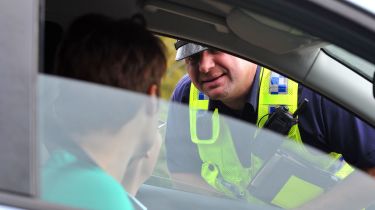Drug driving: UK laws explained
Since stricter laws were introduced in 2015, an average of four UK drivers are found guilty of drug driving every day

It’s obvious that drug driving is dangerous as well as illegal but until relatively recently, there was a perception that it was easier to get away with than drink driving. Changes to the law in 2015, however, have made it easier for police to tackle.
Historically, it has been more difficult to catch a drug driver than a drink driver - partly because drug taking is less common than drinking - but also because police didn’t have the equipment they needed to determine who was under the influence.
Road-safety group THINK! published research that found that around 20% of people know someone who has driven after taking drugs. It also found that over half of drug drivers did so because they felt they wouldn’t get caught.
Yet, as of 2015, there are strict “zero tolerance” rules around drug driving. New technology to catch the motorists at the roadside was introduced too. A positive roadside test can lead to an instant driving ban, along with a fine and criminal record.
Since these new laws came into effect, drivers are now as likely to be found guilty as those who drink and drive. Around four people per day on average are caught drug driving.
Illegal drugs are a big problem with regards to driving under the influence but prescription medication can also alter your ability to drive, and there are restrictions and penalties for driving under the influence of such drugs.
Illegal drugs can be detected via a roadside test and there is a no tolerance policy - so if you have any trace in your system, you will be prosecuted. This is different from drink driving, where there is a threshold for blood alcohol levels. Even after a few days of taking a drug, you may still have traces of it in your system, which could be detected by a roadside saliva test.
To help with detection, police use ‘drugalyser’ kits, which take a sample of saliva to test for common recreational drugs such as cannabis and cocaine at the roadside. The check takes around 10 minutes to deliver a result and a positive test will end in your arrest and a further blood sample required at a police station.
Since the new laws were introduced, the police can also run blood tests for drugs such as ecstasy, LSD, ketamine and heroin without having to gather evidence that the driver seemed to have impaired driving ability, as was previously required.
The results of those blood tests will decide if you will be charged. Apart from very small amounts, which are deemed as ‘accidental exposure’ (such as passively breathing in cannabis smoke in a room at a party, for example) you are likely to be prosecuted. Even these small amounts are likely to attract questions from the police, regardless of the quantities involved, because they’re illegal.
| ‘Illegal’ drug driving limits (‘accidental exposure’ – zero tolerance approach) | Threshold limit in microgrammes per litre of blood (µg/L) |
| benzoylecgonine | 50µg/L |
| cocaine | 10µg/L |
| delta-9-tetrahydrocannabinol (cannabis) | 2µg/L |
| ketamine | 20µg/L |
| lysergic acid diethylamide | 1µg/L |
| methylamphetamine | 10µg/L |
| Methylenedioxymethamphetamine (MDMA) | 10µg/L |
| 6-monoacetylmorphine (heroin) | 5µg/L |
Driving while on prescription medication
The question of medicinal drug use is more complicated. Many prescription medications can leave you unfit to drive, and the best advice is to seek the guidance of your doctor, pharmacist and to read the packaging carefully before taking them to see if they will affect your ability to drive. If you fail to do so and get caught or have an accident, don’t expect the law to be on your side.
The Government does publish the legal levels for ‘medicinal’ drug driving limits (below) but there is no way for an individual to know exactly how much these amounts will affect them personally. It’s impossible to provide a rule of thumb for what dosage equates to the threshold levels as it differs from person to person and is affected by variables such as diet, water intake and exercise. As always, the rule is that if you are in any doubt at all, do not drive a car.
| ‘Medicinal’ drug driving limits (risk based approach) | Threshold limit in blood |
| clonazepam | 50µg/L |
| diazepam | 550µg/L |
| flunitrazepam | 300µg/L |
| lorazepam | 100µg/L |
| methadone | 500µg/L |
| morphine | 80µg/L |
| oxazepam | 300µg/L |
| temazepam | 1,000µg/L |
| Separate approach (to balance its risk) | Threshold limit in blood |
| amphetamine | 250µg/L |
Punishments for drug driving
The laws and punishments for drug driving are similar to those for drink driving. Risk it, and you are likely to lose your licence, face a stiff fine of up to £5,000 and be given a criminal record. In addition, users of illegal drugs will face other charges for possession and are likely to be asked some awkward questions too.
If you want to know more about the legal limits for drink driving, read our in-depth guide.
Most Popular
Tips & advice

Car dashboard warning lights: what does each symbol mean?

Electric car charging stations: public networks, charger types, apps and maps






